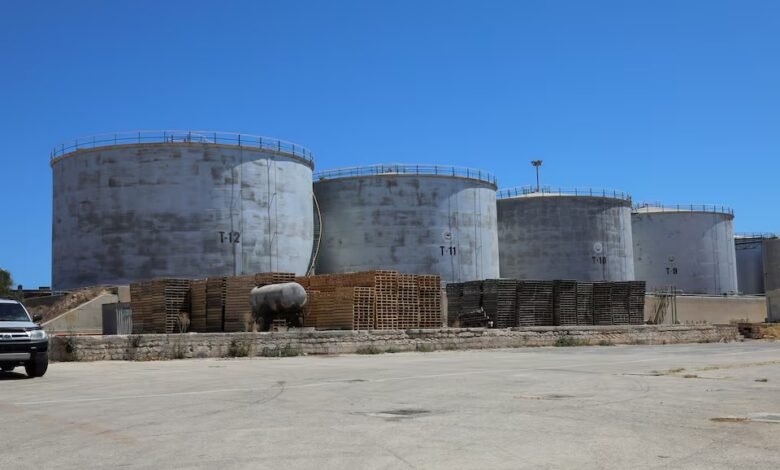
Oil prices steadied on Tuesday following an uptick of more than 7% over the previous three sessions, driven by concerns over potential disruptions in the Middle East and the possible shutdown of Libyan oil fields.
By 0630 GMT, Brent crude futures edged up by 3 cents to $81.46 per barrel, while U.S. West Texas Intermediate (WTI) crude futures slipped by 6 cents to $77.36 per barrel.
“Today’s session suggests oil prices are taking a breather after the sharp rally over the past few days,” said Yeap Jun Rong, a market strategist at IG.
“The recent surge in oil prices has been fueled by geopolitical risks in the Middle East and potential production halts in Libya, but now market participants are in a wait-and-see mode to assess further developments.”
The gains in the previous three sessions were influenced by several factors, including expectations of potential U.S. interest rate cuts that could boost fuel demand, escalating military clashes between Israel and Hezbollah in Lebanon, and the risk of Libyan oil field closures due to political tensions.
Over this period, WTI gained 7.6% while Brent increased by 7%.
On Monday, the eastern-based administration in Libya announced the closure of oil fields in the region, which are responsible for nearly all of the country’s production, citing heightened tensions over the leadership of the central bank.
Also Read: Libyan Central Bank Standoff Deepens as Governor Won’t Back Down
This move is likely to halt both production and exports and would impacting Libya’s oil output, which stood at 1.17 million barrels per day according to the latest Reuters survey of OPEC production in July.
However, there has been no confirmation of this shutdown from the internationally recognized government in Tripoli or from the National Oil Corporation (NOC), which oversees the country’s oil resources.
Serena Huang, an analyst at Vortexa as reported by Reuters said that while bearish demand sentiment, particularly from China, could exert downward pressure on oil prices, the potential closure of Libya’s oil fields would likely tighten supply and help stabilize prices.
“Other oil producers might welcome higher prices and may not rush to increase supply immediately,” she added.
The recent surge in oil prices has also been supported by escalating tensions between Israel and Hezbollah, following a major exchange of missiles as Hezbollah retaliated for the killing of a senior commander last month.
ANZ analysts commented in a note that “markets remain on edge as skirmishes between Israel and Hezbollah intensify.”
Despite the volatility, a top U.S. general suggested on Monday that the risk of a broader conflict had somewhat diminished, though the possibility of an Iranian strike on Israel still poses a significant threat.






I think other web-site proprietors should take this site as an model, very clean and fantastic user friendly style and design, let alone the content. You are an expert in this topic!
I am really inspired with your writing abilities as smartly as with the structure on your blog. Is that this a paid subject or did you modify it your self? Either way keep up the excellent high quality writing, it is rare to peer a great weblog like this one nowadays!
This design is wicked! You most certainly know how to keep a reader entertained. Between your wit and your videos, I was almost moved to start my own blog (well, almost…HaHa!) Fantastic job. I really enjoyed what you had to say, and more than that, how you presented it. Too cool!
Great post and right to the point. I am not sure if this is in fact the best place to ask but do you guys have any thoughts on where to get some professional writers? Thx 🙂
Appreciate it for helping out, great information.
Perfect work you have done, this internet site is really cool with superb info .
When I originally commented I clicked the -Notify me when new comments are added- checkbox and now each time a comment is added I get four emails with the same comment. Is there any way you can remove me from that service? Thanks!
Thanks for the update, can I set it up so I get an alert email when you write a new post?
I was curious if you ever considered changing the structure of your website? Its very well written; I love what youve got to say. But maybe you could a little more in the way of content so people could connect with it better. Youve got an awful lot of text for only having one or 2 pictures. Maybe you could space it out better?